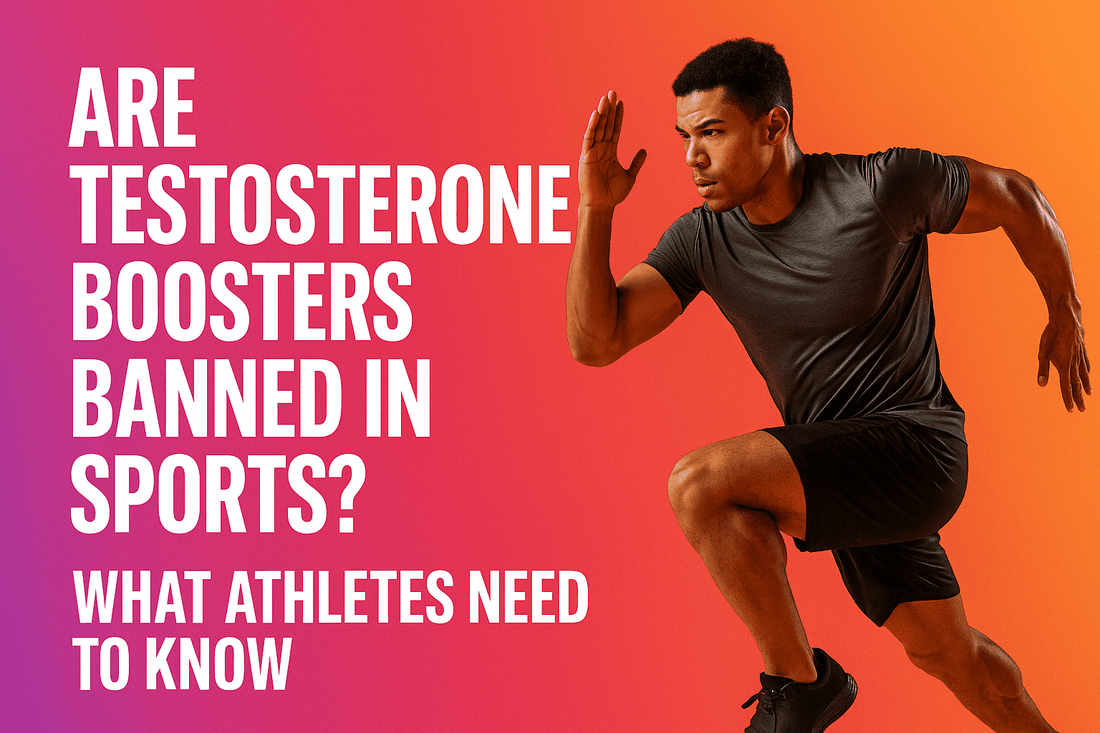
Are Testosterone Boosters Banned in Sports? — What Athletes Need to Know
Share
Quick Answer
- There is no blanket ban on the marketing term “testosterone booster.” What matters is the ingredients. If a product contains a prohibited substance (e.g., testosterone/prohormones like DHEA/androstenedione, SARMs, or hormone modulators like clomiphene or aromatase inhibitors), it’s banned at all times in sport.
- Even “herbal” boosters can be contaminated/spiked with banned drugs. Under WADA’s strict-liability rule, athletes are responsible for anything in their body—inadvertent doping still results in sanctions. Use only supplements that undergo independent banned-substance certification.
- For non-tested general fitness users, ingredients like ashwagandha or purified shilajit are not specifically prohibited, but competitive athletes must verify every batch (Informed Sport/Informed Choice) or avoid supplements altogether.
How WADA actually classifies “testosterone booster” ingredients
WADA bans substances by class, not by marketing buzzwords. Common ways a “booster” can be banned:
- Anabolic Agents (S1 — prohibited at all times)
- Exogenous testosterone and its precursors (e.g., DHEA / androstenedione / androstenediol) and SARMs (e.g., ostarine, ligandrol) fall here. If a booster contains these (or a close analog), it’s banned year-round.
- Hormone & Metabolic Modulators (S4 — prohibited at all times)
- Aromatase inhibitors (anastrozole, letrozole, exemestane) and SERMs/anti-estrogens (clomiphene, tamoxifen) can increase or manipulate endogenous T signaling and are banned. These sometimes appear in “PCT”/hardcore boosters or are found as undeclared contaminants.
- Strict liability + supplement risk
- WADA’s Code holds athletes strictly liable: a positive test is an ADRV even if a label was wrong. Certified products reduce (not eliminate) risk; uncertified products have produced many AAFs (positives) from hidden SARMs/prohormones/stimulants.

Why “safe-sounding” boosters still cause positives
- Label ≠ lab: Investigations repeatedly find undeclared SARMs/prohormones in “muscle/test boosters,” especially online imports. Recent testing campaigns and news reports show a high contamination rate in some markets.
- Botanical variability: Some plant materials naturally carry steroid-like or stimulant alkaloids that can trip tests if not screened to low detection limits. Certified programs test every batch to WADA-relevant thresholds.
FAQ
Are testosterone boosters banned?
Not as a category—but many “boosters” contain banned S1/S4 substances (prohormones, SERMs, AIs) or are contaminated. Athletes are strictly liable for any positive.
Is DHEA allowed?
No. DHEA is prohibited in sport (classified under anabolic agents) even though it’s sold over the counter in some countries.
What about herbals like ashwagandha or shilajit?
They’re not named on the List, but athletes still face contamination risk. Only use batch-certified products—or avoid supplements entirely.
If I test positive from a contaminated product, can I appeal?
Strict-liability means you’re responsible. Certification and meticulous records may mitigate, but sanctions still occur.
Conclusion
- “Testosterone boosters” aren’t banned by name, but many common booster ingredients are prohibited (S1/S4), and contamination is a real risk. Athletes live under strict-liability—only use batch-certified products or avoid supplements.
- For everyday fitness users, focus on sleep, training, diet, and measured, non-hormonal supports with transparent testing.
- When in doubt, ask your team doctor and check the List for the current season.


